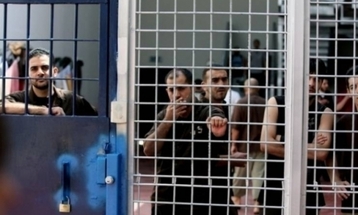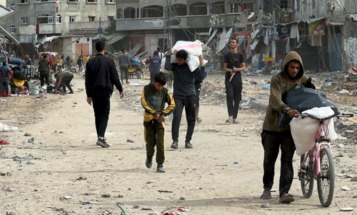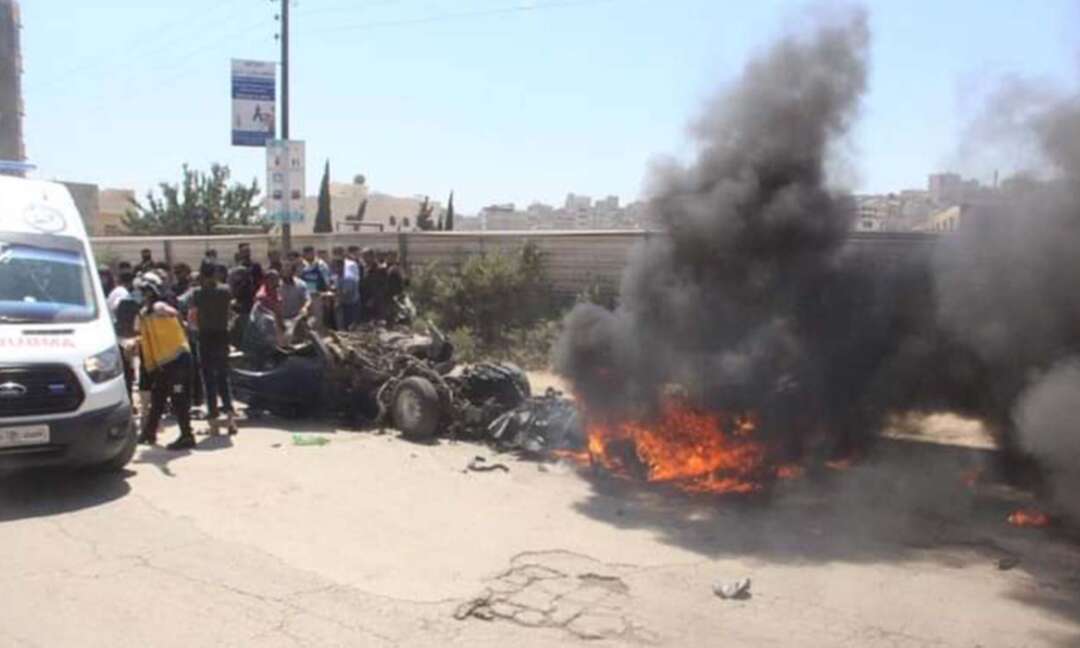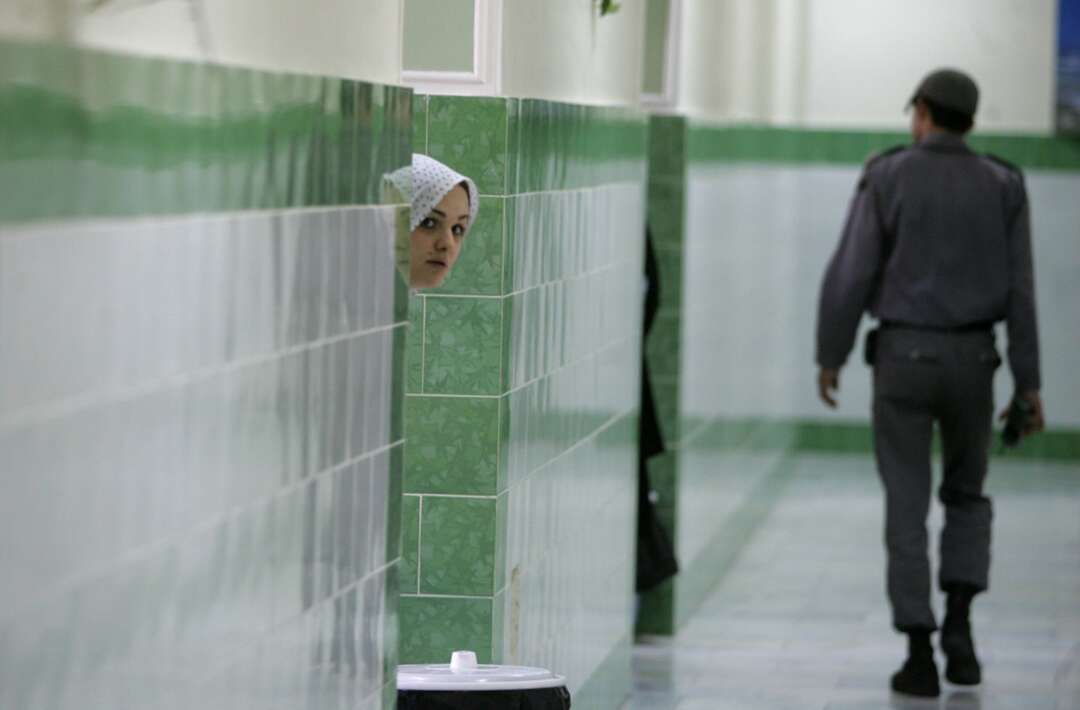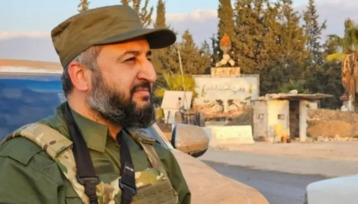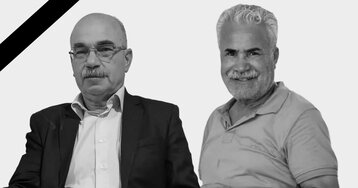-
Iran’s Revolutionary Guards warn of ‘decisive’ action if unrest continues
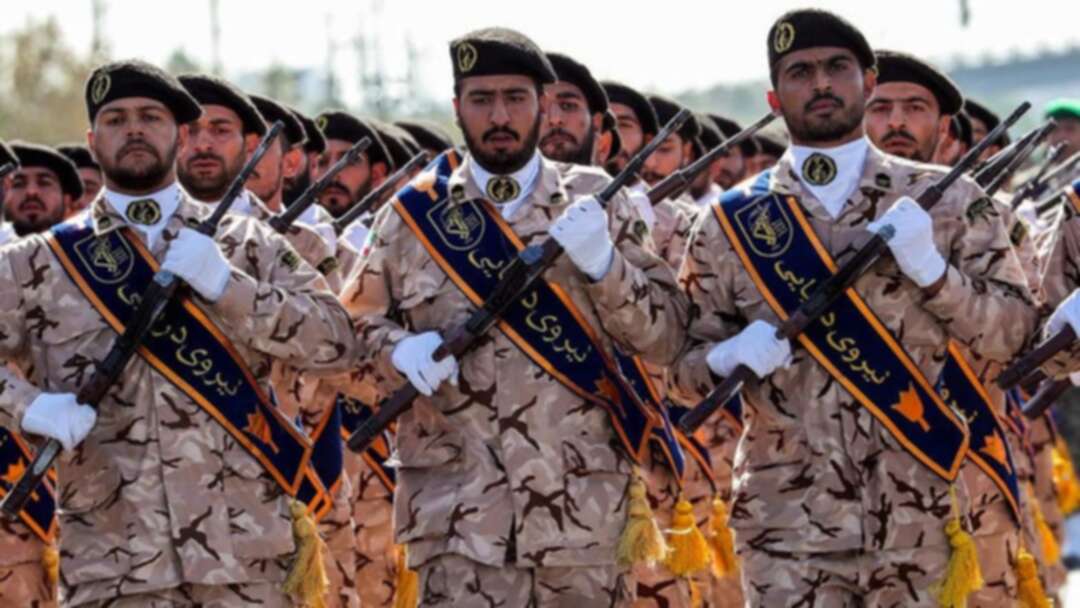
Iran’s Revolutionary Guard Corps (IRGC) warned anti-government protesters on Monday of “decisive” action if unrest over gasoline price hikes does not cease, state media said, hinting at a harsh security crackdown.
The protests have spread across the Islamic Republic since Friday, with demonstrators demanding that clerical leaders step down. At least 100 banks and dozens of buildings and cars have been torched, state media reported.
“If necessary we will take decisive and revolutionary action against any continued moves to disturb the people’s peace and security,” the Revolutionary Guards, Iran’s heavily armed main security force, said in a statement carried by state media.
The scale of the disturbances sparked by announcements of fuel rationing and price rises of at least 50 percent remains unclear as authorities have curbed Internet access to stop the use of social media to organize rallies and disseminate videos.
But it appears to be the worst unrest since late 2017 when more than 80 cities and towns saw protests by thousands of young and working-class Iranians fed up with alleged corruption, high unemployment and a widening gap between rich and poor.
The IRGC and their affiliated Basij militia quelled that bout of unrest, in which at least 22 people were killed.
Now anger has resurfaced over the impact of renewed US sanctions and the government’s failed promises of jobs and investment.
Some Iranians managed to post social media videos that showed police firing tear gas to disperse protesters. The images could not be verified by Reuters.
Authorities said several people, including members of the security forces and police, had been killed and around 1,000 “rioters” arrested, some for using guns and knives.
Fars news agency reported that one officer of the Revolutionary Guards and two members of the Basij militia were killed during protests in west Tehran.
Meanwhile, the Governor of Tehran said one member of the Revolutionary Guards was killed in protests in Malard in Tehran province, according to Al Arabiya.
Reports also said that members of the Iraqi Popular Mobilization Units (PMUs) forces took part along with members of the Basij militia in suppressing the demonstrations in Ahwaz province.
Eyewitnesses said that the IRGC used members of the PMUs for the first time on Monday in Ahwaz.
Human rights organizations on Monday put the death tolls so far in protests in Iran at 40.
The Iranian leadership is anxious to end the unrest to avoid giving ammunition to Western, especially US, criticism of the Islamic Republic elite as allegedly corrupt and unaccountable.
President Hassan Rouhani’s government said the gasoline price rises were intended to raise around $2.55 billion a year for extra subsidies to 18 million families - or roughly 60 million Iranians - struggling on low incomes.
Iran’s Supreme Leader Ali Khamenei on Sunday backed the gasoline price rise that has caused nationwide protests, which he blamed on the Islamic Republic’s opponents and foreign foes.
Foreign Minister Mohammad Javad Zarif rejected a statement of support for the protests by the administration of US President Donald Trump, which has dropped out of an international nuclear deal with Iran and reinstated economic sanctions.
“A regime that impedes food and medicine to ordinary people, including the elderly and the sick, by economic terrorism can never get away with the obscene claim of supporting the Iranian people,” said Zarif, according to state media.
Cash handouts to needy
Iran’s faction-ridden political elite has displayed a united front in the face of the disturbances.
Some officials and insiders said the establishment would eventually gain from the turmoil by securing support at parliamentary elections in February.
“Those 60 million people who will receive cash handouts as a result of this price hike will surely vote because the economy is a key issue for many Iranians,” a senior official told Reuters.
“The decision was made because among other reasons, there were concerns that the growing economic discontent, particularly among middle and lower classes, could lead to a low turnout.”
Handouts to the poor, the most consistent supporters of the clerical establishment, will start on Tuesday.
Supreme Leader Ali Khamenei on Sunday blamed the turmoil on Iran’s opponents and foreign foes, denouncing protesters who attacked public property as “thugs.”
For many Iranians, the challenge to make ends meet became even harder last year when Trump withdrew the United States from the nuclear deal with world powers and reimposed sanctions that had been lifted under the accord.
Frustration has grown over a sharp devaluation of Iran’s currency as well as spikes in the prices of bread, rice and other staples since Washington began to apply “maximum pressure” on Iran to make nuclear and security concessions.
Many in oil-producing Iran see cheap gasoline as a right and the price hike caused fears of a further squeeze on living costs.
Tags
You May Also Like
Popular Posts
Caricature
opinion
Report
ads
Newsletter
Subscribe to our mailing list to get the new updates!

